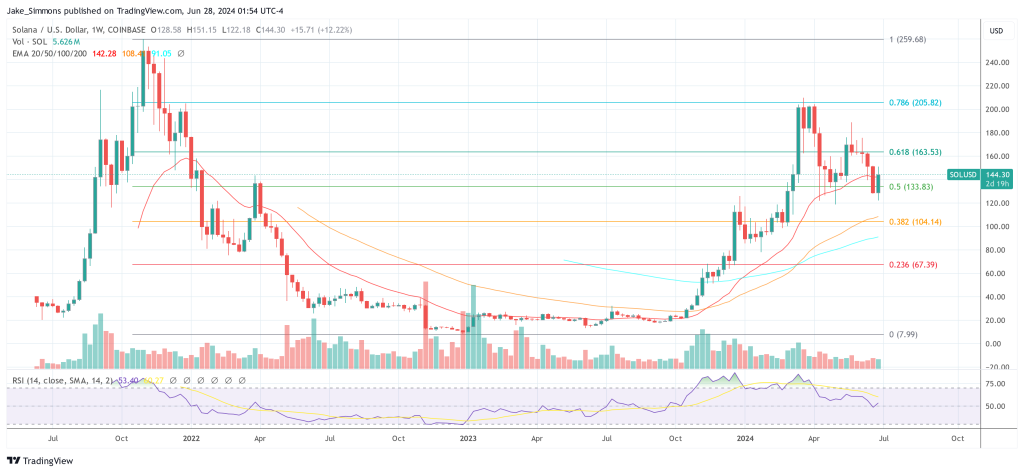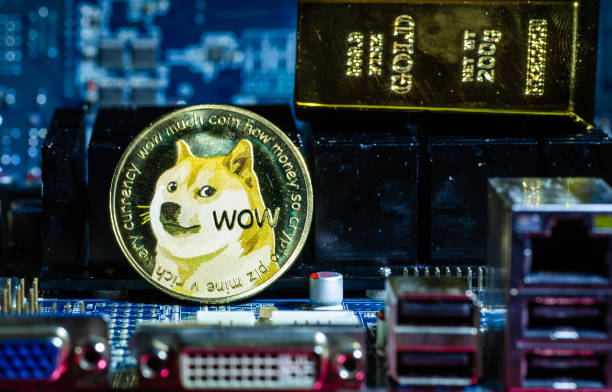On Thursday, VanEck filed an application for the inaugural US-based spot Solana Exchange-Traded Fund (ETF). This move has sparked considerable interest among investors and analysts alike. GSR, a prominent market maker, has released an in-depth analysis entitled “Is Solana Next?” which projects an extraordinary potential increase in SOL’s price, possibly by up to nine times, under the right conditions.
Can The Spot Solana ETF Be Approved?
Established in 2018 by visionaries Anatoly Yakovenko and Raj Gokal, and officially launched in 2020, Solana represents a state-of-the-art blockchain architecture developed to achieve high throughput and scalability. This blockchain is distinguished by its low transaction costs and an expansive array of decentralized applications (dApps), facilitating nearly 300 billion transactions and securing over $4 billion in total value locked.
Recent advancements within the ecosystem, including significant token launches and project migrations, have reinforced its market standing. “Solana continues to set itself apart with a flurry of high-profile initiatives and technological innovations that cater to a broad spectrum of blockchain applications,” the GSR report notes, highlighting its robust growth and innovation trajectory.
However, the introduction of a spot ETF hinges significantly on the evolving regulatory landscape. The current US regulations necessitate a federally-regulated futures market for any cryptocurrency under consideration for an ETF, a criterion presently met only by Bitcoin and Ethereum.
However, GSR suggests a potential shift in the regulatory atmosphere, influenced by political and public sector developments. “Recent bipartisan support and legislative changes signify a warming stance towards digital assets, increasing the likelihood of accommodating new crypto ETFs,” GSR states, indicating a dynamic shift that could favor SOL.
The analysis by GSR also digs deep into other prerequisites and implications of a potential spot ETF. It identifies key factors that could influence the approval and success of such an ETF, including the blockchain’s level of decentralization and the demand for Solana-based investment products.
The “Decentralization Analysis” within the report points out that while there is no universal method to gauge decentralization, metrics such as the Nakamoto Coefficient, staking requirements, and governance ratings are instrumental. Solana scores highly on these fronts. Thus, GSR concludes that the crypto asset exhibits a “robust decentralization profile that may well position it favorably in regulatory reviews.”
On the demand front, the analysis is equally thorough. GSR assesses market cap, trading volumes, and the performance of existing investment products to gauge potential demand. “The robust market indicators and substantial existing product AUM suggest a strong potential demand for a Solana spot ETF,” the report explains.
SOL Price Predictions
The price impact analysis is a cornerstone of GSR’s report, offering detailed scenarios under which SOL’s price could increase. GSR outlines three scenarios—bear, base, and blue sky—estimating the inflows into a Solana ETF relative to those seen by Bitcoin’s ETFs.
Bear Case Scenario: This scenario assumes Solana captures a minimal market share, equivalent to 2% of Bitcoin’s ETF inflows. “Even under conservative assumptions, we forecast a potential 1.4x increase in Solana’s price,” GSR estimates.
Base Case Scenario: Here, SOL is expected to achieve inflows amounting to 5% of Bitcoin’s, based on recent years’ data. “This more balanced scenario sees Solana potentially tripling in value, offering a 3.4x price increase,” the report suggests.
Blue Sky Scenario: This optimistic case assumes Solana could capture up to 14% of the inflows relative to Bitcoin, based on exceptional performance in specific periods. “Under the most favorable conditions, SOL’s price could increase nearly 9x, reflecting its high utility and increasing market presence,” according to GSR.
At press time, SOL traded at $144.












